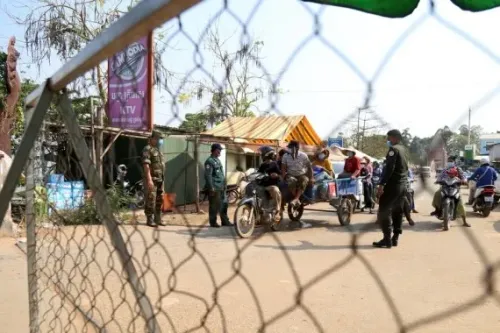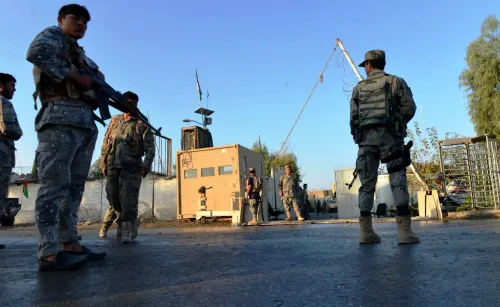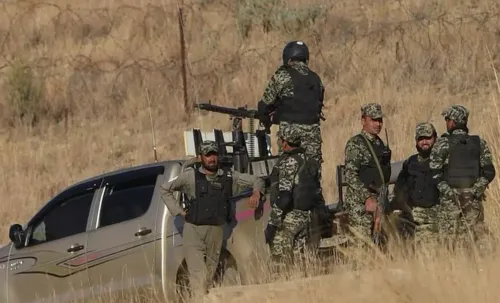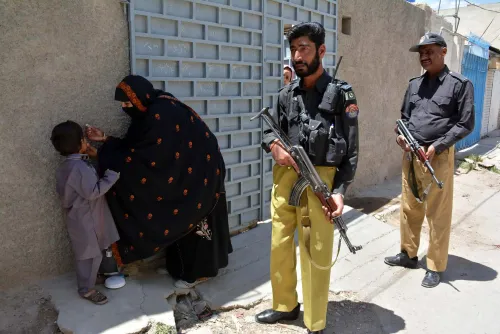What Are the Trade Implications of the Afghanistan-Pakistan Border Closure?
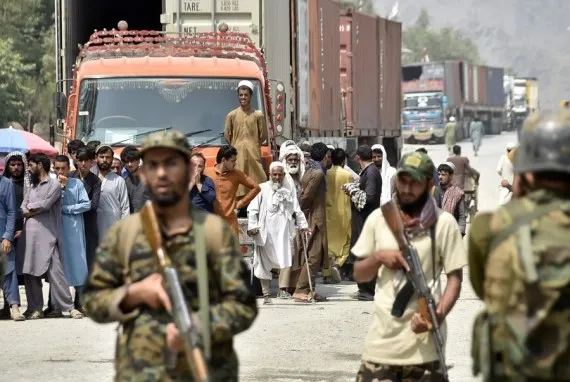
Synopsis
Key Takeaways
- Four-day closure of border crossings impacts trade.
- Traders report significant losses.
- Calls for government intervention are growing.
- Criticism of violations of international trade norms.
- Alternative trade routes are being explored.
- Recent clashes have led to civilian and military casualties.
Kabul, Oct 15 (NationPress) With crucial border crossings between Pakistan and Afghanistan remaining closed for the fourth day in a row, there are growing concerns about the significant repercussions on the trade and economic activities of both countries.
Key trade points, such as Torkham, Spin Boldak, Ghulam Khan, Dand Patan, and Shahr Naw, have been shut in recent days due to escalating political and military tensions between Afghanistan and Pakistan. As of now, no specific timeline has been provided for the reopening of these border crossings, leaving hundreds of trucks laden with goods stranded on both sides of the Durand Line.
The Border Chamber of Commerce and Industry has reported substantial losses for traders due to the ongoing closure of the border, urging the governments of both nations to intervene and resolve the situation, as reported by Afghanistan's prominent media outlet, Tolo News.
Former head of the Border Chamber of Commerce and Industry, Shahad Hussain, stated, "Currently, trade routes are impassable. Our appeal to both governments is to address this issue so that trade and cross-border transit can recommence. The harms extend beyond Afghanistan, affecting ordinary citizens in Pakistan as well."
The Afghanistan Chamber of Commerce and Investment has condemned Pakistan's actions, labeling them a breach of established international trade standards, emphasizing that commercial relations should not be jeopardized by political discord.
Chamber spokesperson Jan Aqa Naveed remarked, "Various international trade bodies, including the World Trade Organization (WTO), advocate that no barriers should obstruct Afghanistan’s exports, imports, or transit. Sadly, these challenges persist." Numerous Afghan traders have called for Afghanistan to bolster alternative trade routes via Iran, Central Asia, and China to minimize economic reliance on Pakistan.
Earlier today, reports indicated that the Taliban announced at least 12 fatalities and over 100 injuries due to a Pakistani military strike on the Spin Boldak district in southern Kandahar province of Afghanistan on Wednesday.
In a statement shared on X, Taliban spokesperson Zabihullah Mujahid accused Pakistani forces of launching an assault on the border district early in the morning using both light and heavy weaponry. Mujahid noted that several Pakistani soldiers were killed in retaliatory actions taken by Afghan forces, as reported by Afghanistan's leading news agency, Khaama Press.
"Regrettably, this morning, Pakistani forces once again initiated attacks with various weapons on Afghanistan in the Spin Boldak district of Kandahar, resulting in over 12 civilian deaths and more than 100 injuries. Following this, Afghan forces had to engage in retaliatory measures," Zabihullah Mujahid posted on X.
"In the course of these defensive operations, several Pakistani aggressor soldiers lost their lives, their positions were overtaken, and Afghan forces seized weapons and tanks, destroying many military installations. Nevertheless, the mujahideen, with unwavering resolve, stand ready to protect their homeland and people," he added.
Taliban officials indicated that clashes between the forces of Pakistan and Afghanistan commenced around 4 AM (local time) and persisted until 8 AM (local time). Local sources reported casualties on both sides, with civilian areas in proximity also suffering damage. This incident occurred amid escalating border tensions following a series of confrontations and airstrikes in recent days.

